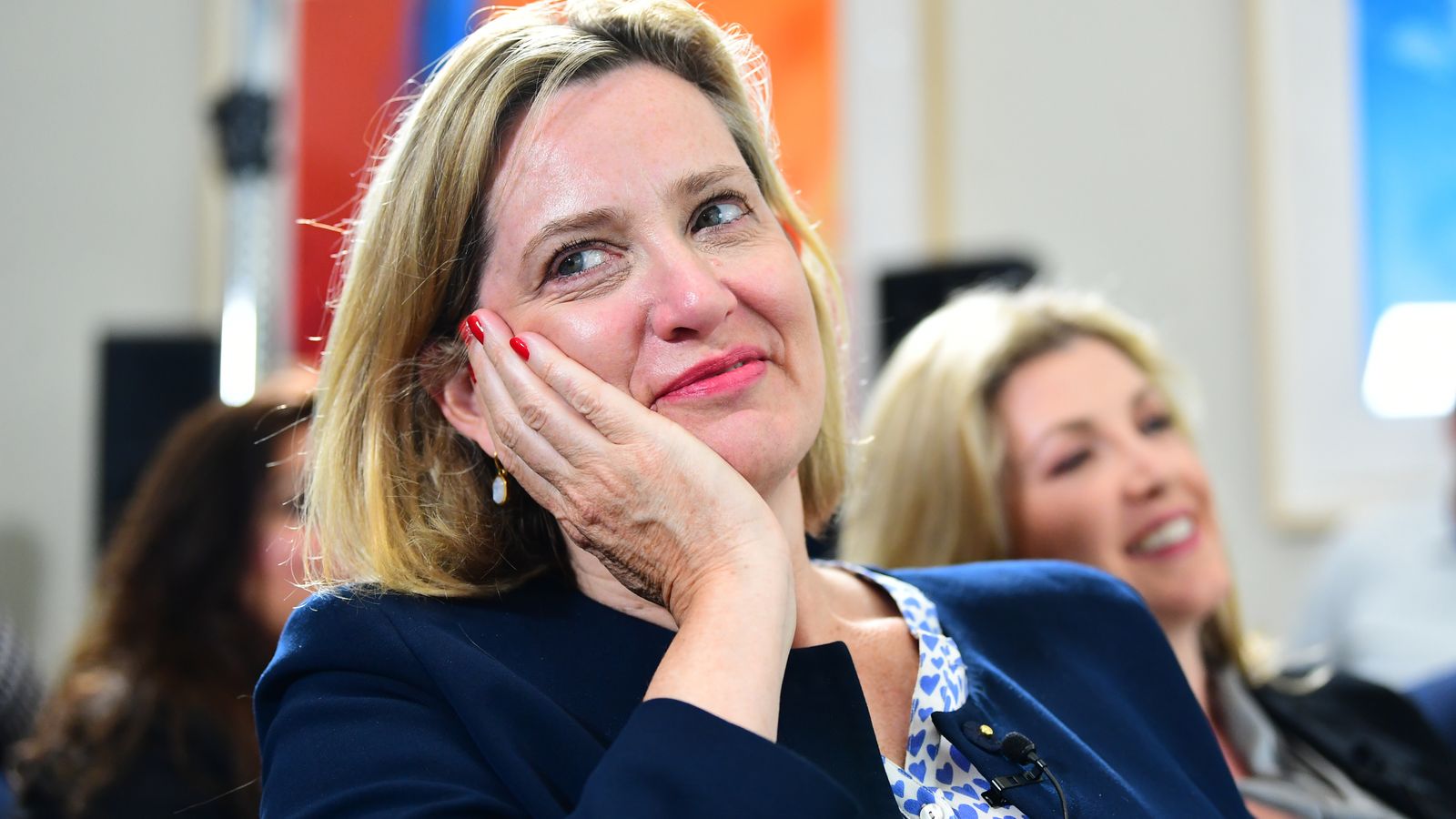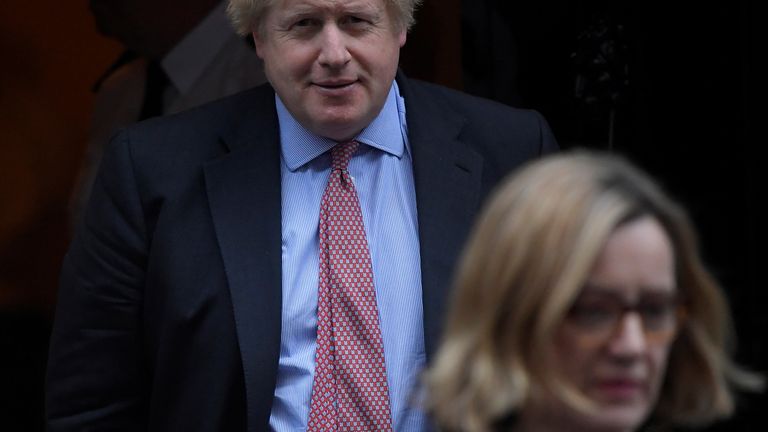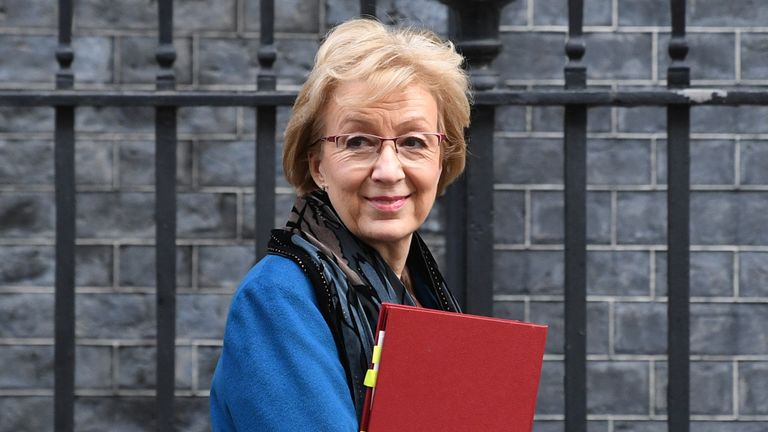The prime minister has a “sort of language which he’s quite rightly nervous using in front of women”, according to one of his former ministers.
Amber Rudd, who briefly served as work and pensions secretary under Boris Johnson after he came to power in July 2019, accused him of going “backwards” on promoting women.
She said she quit her role in September of that year because she did not like Mr Johnson’s style of government as Brexit consumed the early days of his premiership.
Ms Rudd made the comments as part of an Institute for Government (IfG) project which speaks to former ministers and gets them to reflect on their time in power.
In her interview for the study, Ms Rudd voiced fears about the promotion of women, declaring that Westminster still has a “boys’ club” atmosphere and is “still more like a public school or a university club than anywhere else you’ll ever go”.
“I fear that it’s going backwards a bit at the moment because unless you have the leadership really making an effort to ensure that women are promoted as equals, all the time – not just because, oh, let’s promote the women, we forgot about the women – it’s going to be a problem.
“I see that in Boris Johnson, I’m afraid. Even though I don’t dislike him at all. He’s come from that establishment group.
“And also, he has that sort of language, which he’s – quite rightly – nervous of using in front of women.”
Ms Rudd, who quit as Theresa May’s home secretary in 2018 over the Windrush scandal, returned to government later that year and surprisingly kept her job when Mr Johnson succeeded Mrs May.
Having been a vocal opponent of a no-deal divorce with the EU, telling constituents it would “do generational damage to our economy and security”, she dropped her strident opposition to such a scenario and remained in cabinet.
But she quit less than two months later over Brexit, leaving the party as well.
Discussing her departure, Ms Rudd said: “It was Boris Johnson’s style of government, really.
“It was the way he treated other people and his determination to deliver Brexit, whatever the cost in terms of the economy and, I thought, the consequences to people’s lives.”
Ms Rudd, who backed Remain in the 2016 referendum, was involved in one of the more memorable moments of the campaign when she remarked of Mr Johnson in a TV debate: “Boris is the life and soul of the party, but he is not the man you want driving you home at the end of the evening.”
Former Commons leader and business secretary Andrea Leadsom also spoke to the IfG.
She revealed that relations with John Bercow, the former speaker, plumbed such depths that she would not hold regular weekly meetings with him alone.
The pair regularly clashed when she was Commons leader from 2017 to 2019, with Mr Bercow at one point accused of calling Ms Leadsom a “stupid woman”.
“It reached a point where I had to take someone with me, because of the level of vitriol in those meetings,” she recalled.
“And he, likewise, said he needed to have someone there, because apparently I was extraordinarily difficult.”
Meanwhile, ex-attorney general Jeremy Wright told the study the government should have done more to back judges involved in high-profile Brexit cases from criticism in the press.
“Where I think we were going wrong… was to allow the sort of abuse to play out in the newspapers, of those who were doing their job as judges and as lawyers,” he said.



